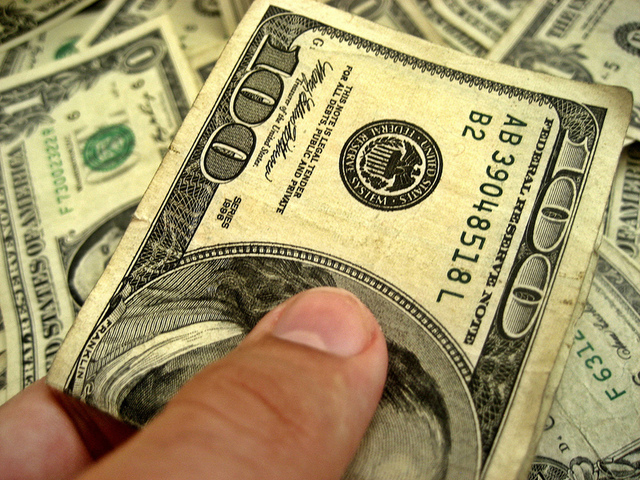
Tradehill, the major Bitcoin exchange that shut down last month citing regulatory problems, has filed a lawsuit against the payment startup Dwolla. Tradehill charges that Dwolla cheated it out of more than $160,000. According the lawsuit, the loss of funds forced most of Tradehill's employees to work without pay beginning in September 2011 and was a major factor in the exchange's collapse last month.
Tradehill claims the two firms had a falling-out over "chargebacks." A customer in a traditional bank can dispute a charge he believes to be fraudulent; the bank will typically reverse the transaction and begin an investigation to determine the truth of the accusations. Evidently, some of Tradehill's users transferred funds to Tradehill from their banks using Dwolla, purchased Bitcoins, and then disputed the original Dwolla withdrawals with their banks. Dwolla responded by deducting the funds from Tradehill's account.
The problem, according to Tradehill, is that Dwolla had advertised its service as having "no chargebacks." Tradehill says Dwolla's website had stated that transactions were "as good as cash," and that representatives from the e-commerce site repeatedly confirmed that transactions made through Dwolla were final.
Tradehill claims it tried to address the issue with the startup when money started disappearing from Tradehill's account. But Dwolla allegedly stonewalled, forcing Tradehill to go public with its concerns. The Bitcoin exchange says Dwolla reacted by "scrubbing" its website of references to its "no chargebacks" policy, and allegedly altered its terms of service to specify that customers were responsible for chargebacks.
This put Tradehill in a bind because while Dwolla only claimed to offer irreversible transactions, Bitcoin transactions really are irreversible. So when Dwolla began reversing previously confirmed transactions, the company had no way to recover the lost funds. Tradehill says it lost $94,000 due to chargebacks, and another $70,000 when Dwolla blocked Tradehill from withdrawing its remaining funds by accusing the Bitcoin exchange of fraud.
Obviously, there may be another side to this story. Dwolla declined to comment to us, but in a statement to American Banker, it confirmed that the dispute was over chargebacks. Dwolla denounced Tradehill's lawsuit as consisting of "specious allegations made by those who have a self-serving interest in seeking publicity."
The dispute illustrates what's likely to be a persistent difficulty for firms that attempt to straddle the line between Bitcoin and the traditional banking system. Traditional banks are built on a web of trust. They do business with other institutions with established reputations. Because they know who they're dealing with, they can expect to use after-the-fact investigations and legal penalties as a backstop against fraud. This creates headaches for merchants who need to deal with fraud complaints, but it makes the system safe and convenient for consumers.
Bitcoin, in contrast, is built on the premise that no one has to trust anyone else. Transactions are irreversible, and a Bitcoin user is out of luck if his money is taken fraudulently. That's a headache for consumers, but it has an important upside: Bitcoin transactions really are final.
That works fine as long as everyone is dealing in Bitcoins. But it creates friction when people want to transfer funds from traditional banks to Bitcoin. Depositing dollars into a Bitcoin exchange is invariably a reversible transaction, while withdrawing Bitcoins from an exchange is not. If the deposit is later disputed, the exchange will wind up holding the bag.
To be fair, this problem isn't unique to Bitcoin. If Tradehill is telling the truth about Dwolla's abrupt change in its "no chargebacks" policy, Dwolla didn't fully think through the implications of offering cheap, irreversible payments. Merchants understandably hate chargebacks, so the idea of a chargeback-free financial system is intuitively appealing. But the flip side of no chargebacks is that there are no remedies for defrauded consumers. And, ultimately, consumers are the ones spending all the money, so businesses have little choice but to cater to their whims.
Listing image by 401K
reader comments
39